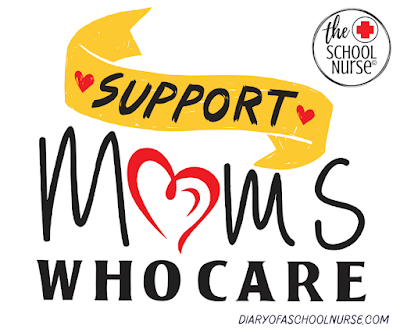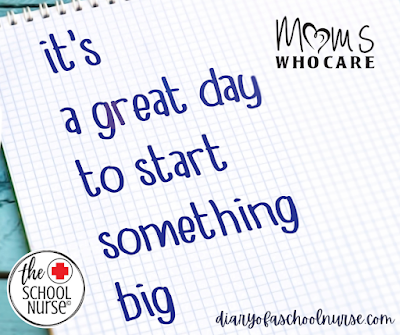I'm a New School Nurse- Now What?
- New to school nursing? Check out this interactive toolkit from NASN —it could be a super helpful resource for you.
- Want to build strong connections? The online CE course titled Building Bridges: The Importance of Networking & Mentoring for School Nurses will teach you how!
- Looking for more support? Sign up for the free 26-part New School Nurse Newsletter series for tips, resources, and guidance throughout your first year!

In the early years of my school nursing journey, I often found myself working outside of my contracted hours—coming in early, staying late, working extra in the summer, and even putting in time on evenings and weekends. While I knew I wouldn’t be paid for this extra time, I was OK with it because having an organized school nurse’s office made it worth the effort.
1. Organizing My Office
- Take time to organize your office! Think about the space you have and how you can make the most of it. Consider setting up workstations within your space—maybe a 'treatment' area for helping students, a dedicated space for organizing your supplies, and a desk area for all that paperwork (trust me, there will be mountains of it!). If you're lucky, you might even have a rest/quiet area for students, too. Having designated areas for your items helps define the space for both you and the students and staff who use it. I personally enjoy decorating my office to make it feel welcoming and functional. You can see a few pictures on The School Nurse Instagram Page and shop some school nurse office decoration ideas on The School Nurse Amazon Storefront Page!

2. Student Compliance & Parent Communication
Do you get paid extra to work during the summer? Many school districts offer nurses extra paid days at the start or end of the school year. For example, I receive 10 extra paid days and I focus on these things:
-
Review incoming student school health records and charts, paying special attention to students with health concerns. Add health conditions to Skyward health portal.
-
Enter immunization records in Skyward, check immunization compliance and reach out to families whose children are out of compliance.
-
Collect updated medication forms, gather emergency action plans, send out staff email regarding the nurse's office guidelines and health concern updates.
-
Communicate with families (via Skyward message center) about our yearly dental clinic and Moms Who Care program and offer a sign up forms.
-
Know the school health requirements for your state, then decide how you’ll track students who aren't in compliance. Good record-keeping in this area will save you time later! I use a combination of Google Sheets and Skyward processing lists for this task.
For my Google sheet, I include columns for: name, grade, date of entrance, date due, required items, and a comments section to document when and how I’ve contacted parents/students. As items are turned in, I delete names unless I need the information for state reporting later in the year—then I simply move it down on the sheet.Emergency Bag for School Nurses
Health Information- Digital Teacher Tips Cards
- Before every school year, I also take time to review and restock office supplies. I have a list of essential items like bandages, gloves, ice pack baggies, etc. This also included expiration dates on your AED pads and batteries—these are often overlooked but critical in an emergency, and updating my monthly AED checklist. Ordering early ensures you have everything you need before the school year gets busy! Click the pictures below for more information on budgeting and supplies!

.png)


.png)
.png)
.png)





).png)



.png)

.png)

.png)

.png)

.png)
.png)




.png)
.png)
.png)





.png)

.png)